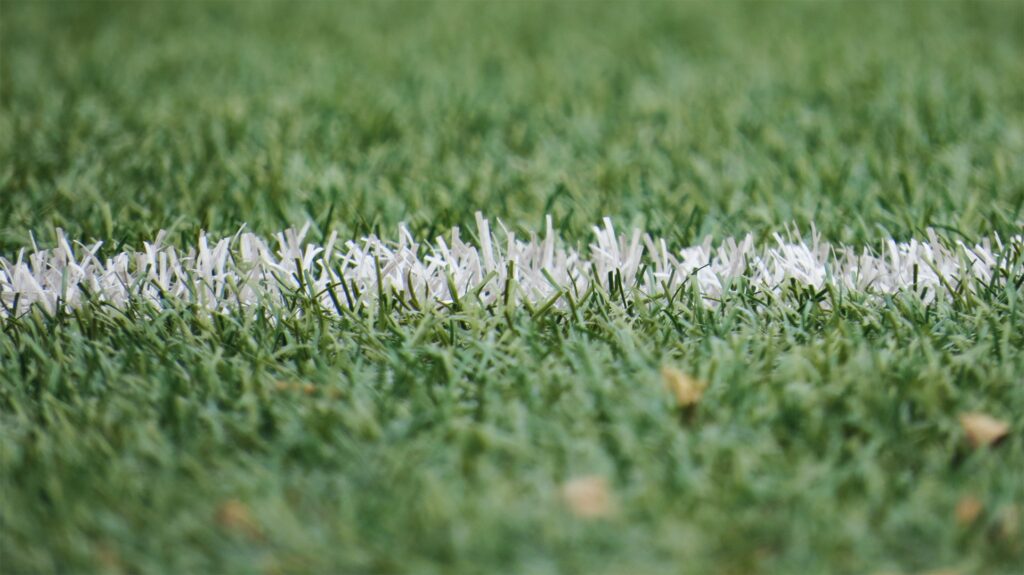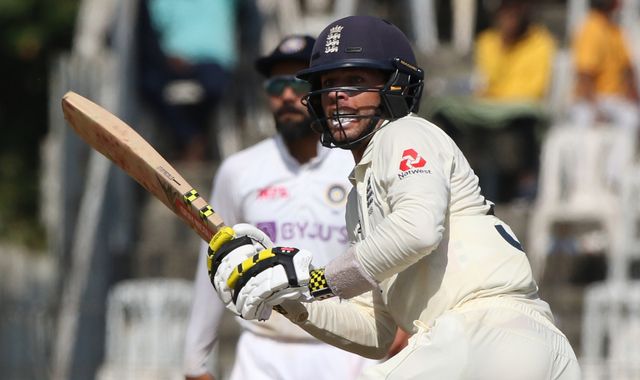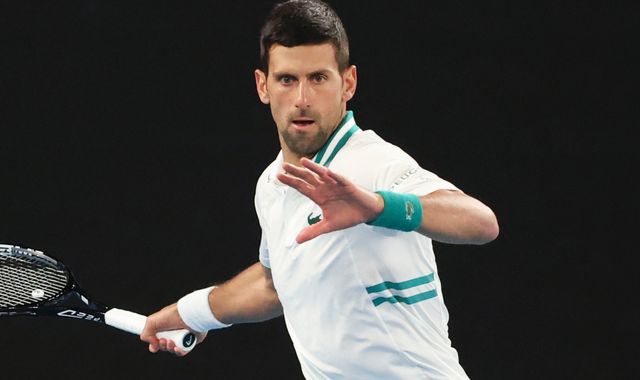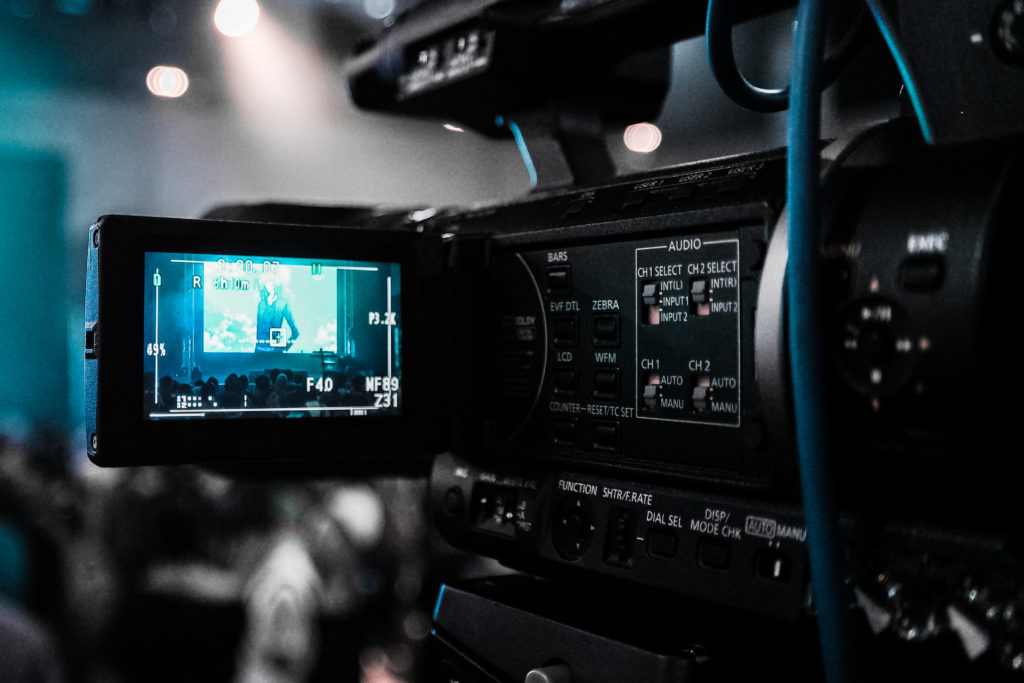Kevin Durant left in no-win situation before Achilles injury ended his season
Written by News on 11/06/2019
Kevin Durant’s season-ending Achilles injury signals the end of the array of narratives that left the Golden State All-Star in a no-win situation, writes Sky Sports’ Mark Deeks.

For a long time now, there has been rumour and intrigue about whether there is discontent within the Golden State Warriors camp, particularly when it comes to Kevin Durant.
The Warriors were able to sign Durant in the summer of 2016, despite having gone an NBA-record 73-9 previous regular season, due to an incredibly fortuitous divergence of unique situations. It all just came together quite nicely, and while wider discussions about parity, ‘super teams’, business interests, player power, autonomy, legacy and the resulting lack of competitiveness across the league were fair, there was also quite a bit of jealousy involved.
After all, who would not want one of the best players the NBA has ever produced on their books? And so why on Earth were the obscenely rich allowed to get rich?
Fuelling the fire has been widely reported comments by Draymond Green to the effect that the Warriors did not “need” KD, David West’s alluding during last year’s championship celebrations to behind-the-scenes drama all season long, and Durant’s decision to re-sign to only a one-year contract this past summer, keeping the option to depart once again and thus opening the door to a year full of rumours and assumptions that he would leave regardless of how this season went.
The simultaneous subjective and ugly discussion as to whether the Warriors – the two-time defending champions with Durant on the team – were somehow better without him gained considerable impetus when he left Game 5 of the Western Conference finals against the Houston Rockets with a calf strain.
The Warriors subsequently closed out that series and then swept the Portland Trail Blazers in the Western Conference Finals, all without him, a treasure trove of evidence to those seeking to take this stance.
Those who held that belief were surely struggling to maintain it during the first four games of these NBA Finals, in which the champs went down 3-1 to a clearly superior and very, very well-prepared Toronto Raptors team. But from that deficit came another damaging, ugly, pointless narrative.
When Durant left the Oklahoma City Thunder to join the Warriors, he made a decision that would in the eyes of many irredeemably blemish his legacy as a player for life. In leaving the team that drafted him – where he lacked the help required to win a title, or at least, so he felt – and joining onto the established great, Durant was deemed a freeloader. A cop-out. Someone who could not hack it, where ‘it’ is defined to mean ‘continuing to be loyal to a team he never chose to join in the first place, due to some preconceived notion of morality and “the right way to do it” when it comes to winning sports titles’.
He knew this would happen because it had happened before to LeBron James. A distant memory though it now seems, James’ decision to leave the Cleveland Cavaliers back in 2010 to join up with Dwyane Wade and Chris Bosh at the Miami Heat in the first ‘super team’ of the modern era was hugely unpopular.
Only by eventually going back to Cleveland and winning them an NBA title was James able to revoke the anger his decision caused. Given that Oklahoma City was not Durant’s hometown team, merely his first one, he would never have that option. He cast his own dye in such a way that it could not be reset.
Combined with this resentment has been the genuinely impressive toughness of some of his team-mates. The absolute workhorse that is Kevon Looney is playing in these Finals with a fractured collarbone, one he again reaggravated in Game 5. For him to be toughing it out takes some serious brass ones, and it is to his eternal credit.
Andre Iguodala is also clearly labouring with a calf injury, yet is giving it a go anyway; Durant, by contrast, had missed 45 days with his calf injury. Given that they both included the word ‘calf’, a false equivalent was there to be had.
The narrative became, was Durant shirking? Is he tough enough? Or is his continued absence some convoluted plan to return as the knight in shining armour and prove the Warriors really are not better without him, thus reclaiming his legacy and validating his titles so many are so keen to asterisk?
Silly, really. Or at least it would have been were it not outright damaging.
With those who seek to find and report stories fuelling the fire with the whispers of discontent – which may well have been legitimate, but legitimacy does not automatically equal fairness; reporting on the fact that some people were having these discussions does not mean those discussions were right to have – Durant was in a no-win situation.
If he could not play, he would be a coward. If he could play and played well, he should have returned earlier. If he could play and did not play well, the Warriors would lose, and his departure would be assumed all but guaranteed.
As it happens, the most sympathetic line towards Durant seems to have been found. He returned for Game 5 yet managed only 11 minutes before suffering an Achilles injury that for all the world looks like a torn tendon. This is near-enough the worst injury a basketball player can have, and it is surely something that was a by-product of playing when he was not ready to do so.
I guess we got what we wanted – toughness. Yippee.
Back in 1970, the regular season MVP, Willis Reed, had led his New York Knicks team to 60 wins and a spot in the NBA Finals. However, in Game 5 of that series, he suffered a calf injury only eight minutes into the game and was unable to return. That same calf injury saw him miss the entirety of Game 6, and he was not expected to play in Game 7, even with a title on the line.
However, in an iconic moment, Reed did come out to start Game 7 after all, a genuine surprise in the pre-social media era when news did not travel fast. Although he was distinctly hobbled, recording only four points in his 27 minutes of action, Reed hit his first two shots to galvanise a loud Madison Square Garden crowd, and was credited for being the catalyst that saw the Knicks win the game and the championship.
After Golden State held on to win Game 5 by one point, their players went to the podium and stated they did it for KD, that his injury gave them strength and motivation, that they did not want to let down a player who has tried so badly to be there for them at his own cost. The parallels to Reed are inevitable and fair.
It is also fair to say the Warriors would likely say this anyway, even if they all secretly hated Durant’s guts. That is the PR game professional athletes must play. Yet we should not from that assume they do not mean it.
After all, another Willis Reed moment was what we wanted, right? If the Warriors come back and win this series, can we weave the narrative around Durant’s heroic return and the uplifting effect it had on his team-mates? Will the beatification begin?
Or will we just interpret it as further evidence that the Warriors are better without him?
Game 6 takes place in Oakland in the early hours of Friday morning live on Sky Sports (2am)
(c) Sky News 2019: Kevin Durant left in no-win situation before Achilles injury ended his season







